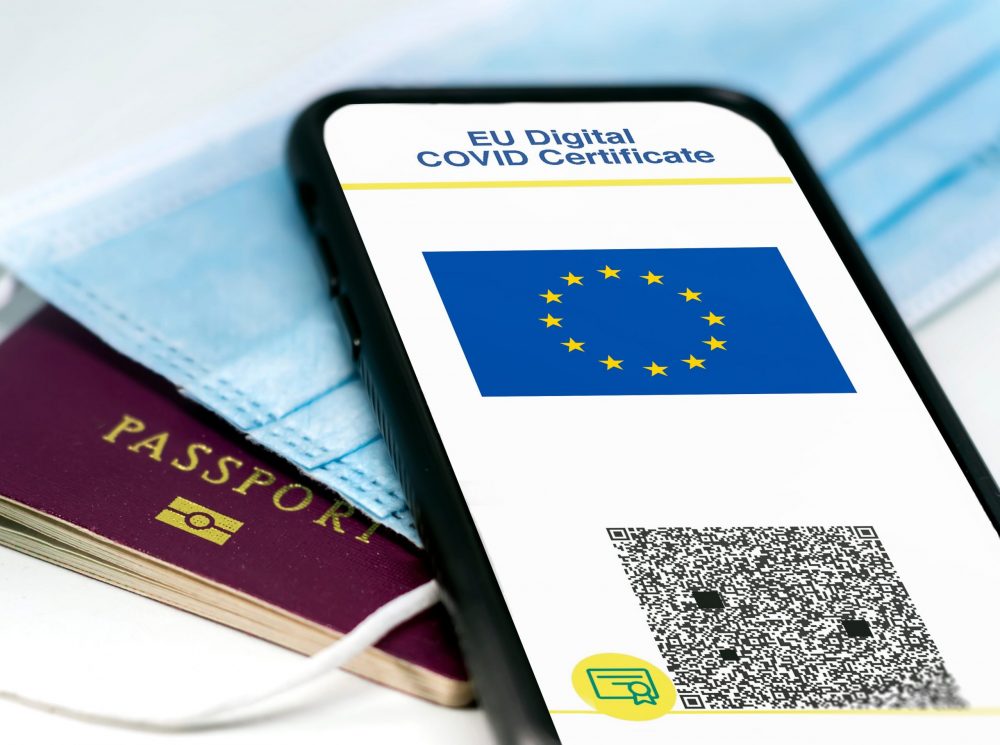
Months in the making, the European Union’s Digital Covid Certificate has finally debuted throughout the zone, where it is hoped that the “vaccine passport” will help EU citizens travel smoothly throughout its 27 Member States, against the lingering backdrop of COVID-19 restrictions.
| [Published on 02 July 2021]
Disclaimer: The information presented in this news may vary from the date it was published and is subject to change. |
EU citizens and residents can download the Digital Covid Certificate in order to display their vaccination status (or provide evidence of a prior infection or a recently taken negative COVID-19 test result). The certificates, which are available at no cost, are accepted by national authorities throughout the EU. They are available in both digital and paper format (it is anticipated that most people will make use of the digital version, which can be easily accessed and displayed on a cellphone). A QR code is embedded in each certificate, helping to ensure that the document is indeed authentic. While the certificates were already being issued throughout much of the EU, July 1st marked the day that they became available across the zone. In addition to being utilized by all the EU countries, the certificates are also being offered by national authorities of three non-EU states: Iceland, Liechtenstein, and Norway. Citizens of EU states can choose to have their certificate displayed in either English or the national language(s) of their respective country.
It is important to note that the covid certificate is not required for travel throughout the EU. However, those who obtain one will be largely able to avoid the COVID-19 restrictions (such as mandatory testing and quarantines) that have traditionally presented as barriers to travel around the zone. If you decline to receive the certificate (i.e. you are unable to show official evidence that you have been vaccinated, are immune to the disease, or are not currently infected with it) you will theoretically be unable to avoid those same restrictions.
From the beginning of the pandemic, COVID-19 threatened the EU’s commitment to freedom of movement for its citizens and residents. With different countries facing different infection rates, individual states imposed their own travel restrictions on arrivals, which predominantly affected foreigners, but also discouraged inter-EU travel for millions of the zone’s citizens and residents. It is anticipated that the digital certificate will reduce barriers to freedom of movement by providing holders with what is, in effect, a document entitling them to avoid being subjected to the restrictions in place for non-holders.
At the moment, the certificate is exclusively reserved for use by EU citizens and nationals. However, going forward, the idea of making the certificate available to foreigners has also been discussed. More likely, while the digital certificate will continue to be reserved for citizens and residents of the zone, citizens of countries outside the EU who adopt a similar digital “covid passport” regime that the EU deems acceptable will be able to use them to travel through the EU (in parallel to the EU certificates).